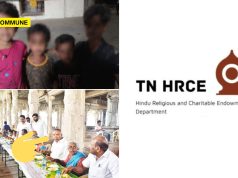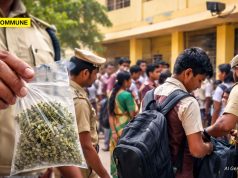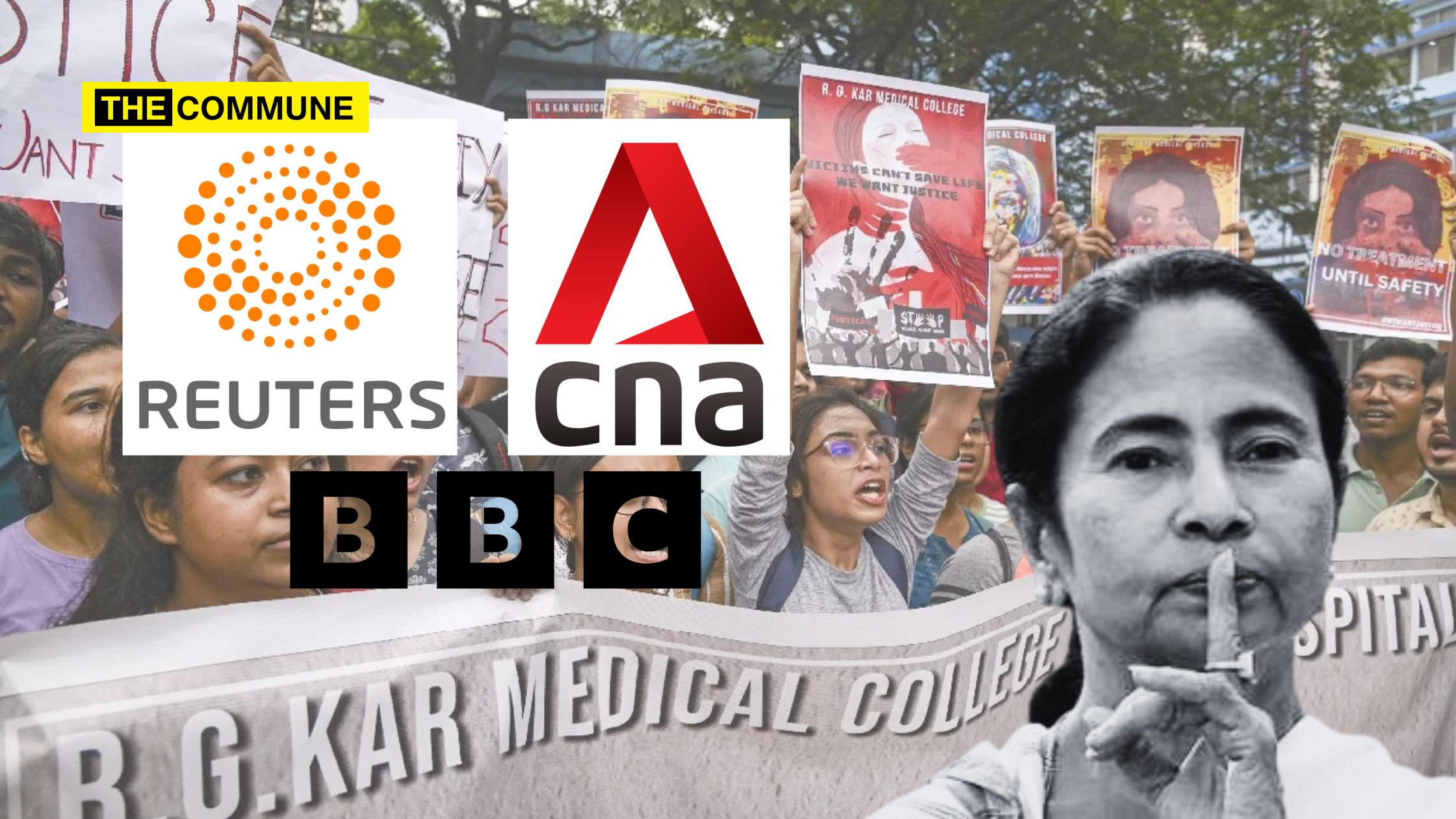
Even as the brutal rape and murder at a Kolkata hospital ignited nationwide protests, the foreign press seems busy piggybacking on this tragedy to tarnish India’s image. Their pixelated reporting deflects the blame from Chief Minister Mamata Banerjee-ruled West Bengal to the rest of India.
Here are some examples of how international media outlets are trying to tarnish India’s image globally as an unsafe country for women.
News Asia
Singapore’s Channel News Asia has seemingly whitewashed the reporting by stating that the horrific incident occurred in “eastern India“.
Why should other eastern states share the shame of the WB law and order mess?
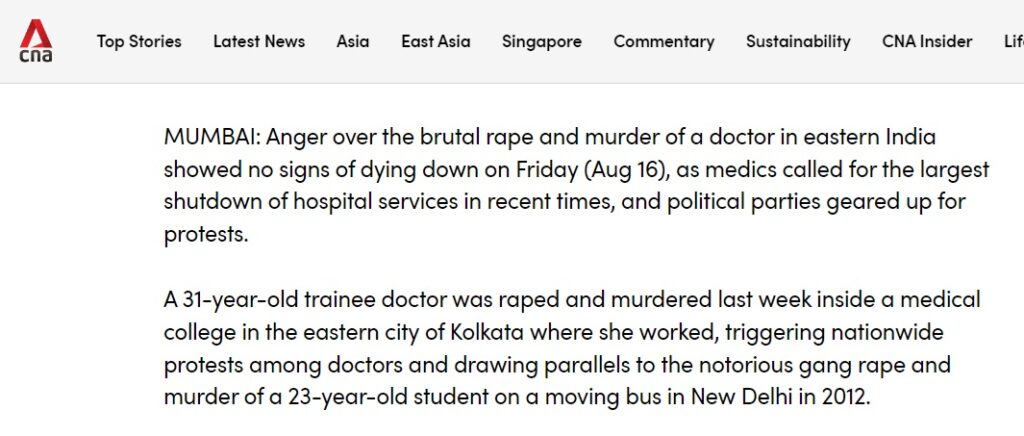
They then go on to report on the massive nationwide protests that the Indian Medical Association (IMA) has called for, and without context. They reproduce the IMA’s press release, which says, “It is for the authorities to provide for the safety of doctors inside hospitals and campuses,”
The IMA’s press release made vague statements about who was responsible for doctors’ safety.
Press Release – 2, Dated 15.08.2024 pic.twitter.com/LcWQtRmK9x
— Indian Medical Association (@IMAIndiaOrg) August 15, 2024
Reuters
Reuters, on the other hand, made it a point to emphasise more on the “safety of women” in India by mentioning rape cases from the past.
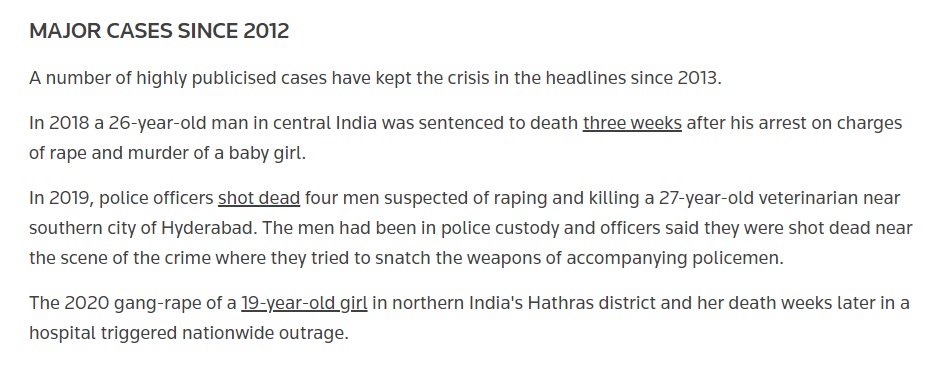
The report seems to shift the focus to India’s broader safety record for women, instead of examining West Bengal’s record. Any reader would believe that India is the rape capital of the world after reading this report, even though it didn’t use that exact phrase.

They then reminded the reader about the “tough laws” brought in after the Nirbhaya rape case in 2012. However, they also make it a point to emphasise that these tough laws were useless in India anyway.
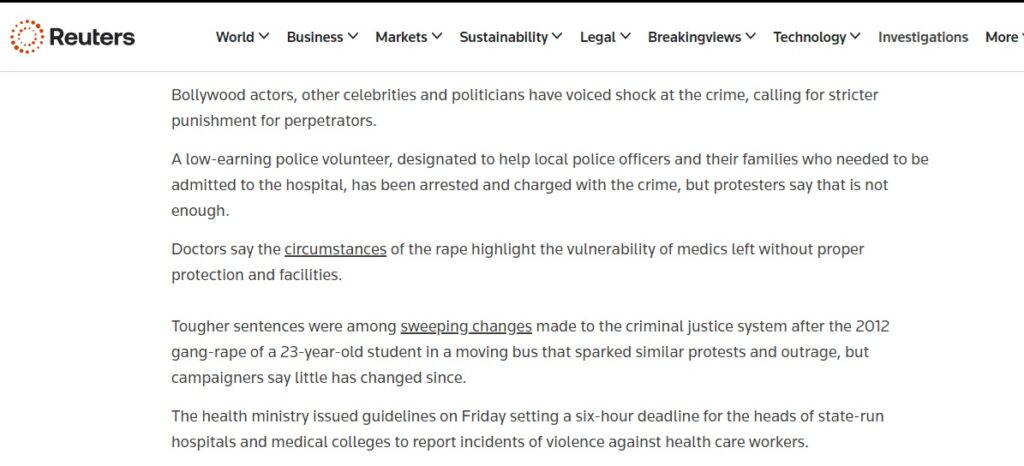
BBC
BBC, while focusing on Kolkata, very subtly inserts the point that India has been a country that has seen women stand up to rape perpetrators, seemingly pushing the idea that India is unsafe as a country.

Why Is This Problematic?
These reports omit key details like the involvement of West Bengal authorities, focusing only on the broader “happening in India” narrative while seemingly blaming the central government when the issue had not been handled properly by the TMC-led Mamata Banerjee government. The selective reporting appears to be influenced by deeper global agendas that aim to obscure the situation’s specifics.
The strike announced by IMA seems to come at a time when there was no other reason for protest. We have seen farmers’ protests, anti-CAA protests, and wrestlers’ protests, to name a few. But another protest is necessary to create a sense of unrest and instability. We all know what happened when the “student-led” protests boiled over in neighbouring Bangladesh.
This rape and murder case seems to have come at the opportune moment for certain players. Even though there are protests, only time will tell if such reports will tarnish India’s image on the global stage.
(Subscribe to our Telegram, WhatsApp, and Instagram channels and get the best stories of the day delivered to you personally.)

